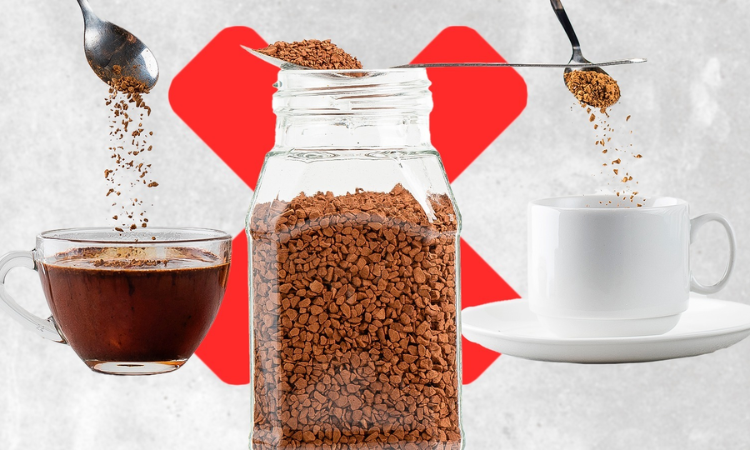As a barista with over 10 years of experience, I’ve had many customers ask me if coffee upsets their stomachs and what they can do to prevent digestive issues. I have a sensitive stomach, so I understand the concern. Through trial and error with different brewing methods and coffee bean varieties, I’ve learned quite a bit about achieving an enjoyable coffee experience without stomach troubles.
Coffee is a complex beverage with over 1,000 different compounds. For most people, coffee consumed in moderation is perfectly fine for the stomach. However, the high acidity and stimulant caffeine can provoke issues in those with sensitivities. The good news is there are ways to customize your coffee so it agrees with your digestion.
Table of Contents
What Makes Coffee Upset Stomachs?
Coffee’s acidic pH is primarily what irritates the stomach lining and causes discomfort. Light roasts are generally more acidic than dark roasts. The longer roasting process reduces the organic acids while producing more alkaline compounds.
Some acids found in coffee include:
- Chlorogenic acid: Higher amounts in light roasts
- Quinic acid: Bitter compound, higher in light roasts
- Caffeic acid: Astringent sensation, higher in dark roasts
Caffeine can also stimulate increased stomach acid production in some individuals. Those with ulcers or acid reflux tend to be more prone to coffee irritation.
Additionally, coffee can loosen the valve between the stomach and esophagus, allowing acids to reflux upwards. This is why some experience heartburn or indigestion after drinking coffee.
Tips for Sensitive Stomachs

Through my personal experience with coffee sensitivities and feedback from customers, I’ve put together the following tips:
- Choose low-acid coffee beans: Java beans from Brazil, Peru, and Sumatra tend to be less acidic. Going with a darker roast also reduces acidity substantially. I’d suggest a French or Italian roast.
- Use a cold brew method: Cold brewing involves steeping ground coffee in room temperature or cold water for 12-24 hours. This slow process softens acids and produces a naturally sweet, smooth concentrate. Dilute it with water or milk before drinking. The lower brewing temperature also avoids acidic oils.
- Add dairy or non-dairy milk: Adding a splash of milk, cream or non-dairy milk like almond or oat can help buffer stomach acidity. The fat and proteins are soothing and slow the coffee’s absorption. I prefer oat milk as it’s neutral in flavor.
- Switch to decaf: If it’s the caffeine that doesn’t sit well with your stomach, try high-quality decaf coffee instead. Look for Swiss water processed as it’s chemical-free. The flavor is quite comparable to regular coffee.
- Drink coffee with food: Having coffee right after you eat or with a small snack creates a buffer between the liquid and your stomach lining. I always have a piece of toast with my morning coffee.
- Stick to 1-2 cups a day: Limiting coffee intake to a couple of small cups a day allows time for the stomach lining to regenerate between exposures to acidity or caffeine. Drinking coffee throughout the day can overwhelm digestion.
- Try tea instead: Tea like green tea has significantly less acidity than brewed coffee and still contains caffeine. The lower caffeine content may also agree better with your stomach. Chamomile and ginger teas can be especially soothing.
- Take an over-the-counter antacid: Having an antacid tablet with your coffee can counteract acid production and alleviate any discomfort. This allows you to keep enjoying coffee without stomach issues.
- Experiment with extracts: As an alternative, consider coffee extracts that isolate the flavor without the high acid content. Products like CoffeeBits or CoffeeFlour deliver a coffee taste and caffeine boost without bothering your stomach.
Is Coffee Good for Digestion?
Coffee promotes the gastrocolic reflex, which is a series of contractions in the colon that move contents onward. So in this regard, coffee can be beneficial for keeping you regular.
Coffee also stimulates the production of gastric acids and bile. But for those prone to heartburn or ulcers, this effect is problematic.
So for healthy individuals, coffee can aid digestion. However, those with sensitivities may struggle with stomach acid stimulation. This reinforces why it’s so important to choose a low-acid coffee and follow other preventative tips outlined above.
The key is moderation – limiting intake to 1-2 cups daily and avoiding drinking coffee on an empty stomach or late at night. This allows the digestive benefits without excessive acid production.
Why I Still Drink and Love Coffee?

Even though I have a history of gastritis and IBS, I still happily drink coffee every morning. Through personal testing, I’ve found that cold brew coffee with oat milk sits extremely well with my digestion. I also take Pepcid Complete occasionally as a preventative measure if I plan to have more than one cup.
I’ve learned my triggers – too much acidity, heat, caffeine, or drinking coffee when my stomach is empty. By customizing my routine, I can avoid these pitfalls. I choose the right beans, brewing method, additions, and habits so I can have my delicious morning coffee ritual without sacrificing my stomach’s comfort.
It does require some trial and error to discover what works for your unique digestive system. But with some tweaking, most coffee lovers can continue to enjoy their daily cup of joe without gastric grief. At my coffee shop, I work closely with customers to adjust brewing methods and make recommendations tailored to their needs. Seeing their joy and relief at finding a coffee they can drink makes all my effort worthwhile.
I hope the tips I’ve provided give you a great starting point to pinpoint what factors may be causing discomfort and how to avoid them. Pay attention to your body, take note of any symptoms, and methodically test adjustments to determine your ideal coffee experience. Finding a sustainable coffee routine you can tolerate and even aids your digestion is possible.
Let me know in the comments if you have any other questions! I’m always happy to chat more about achieving coffee enjoyment without stomach troubles. Here’s to a soothing, satiating cup!
Also Read – Why Does Instant Coffee Taste Bad – Understanding the Flavor Issues

Dina Kalanta is the expert behind brewedcoffee.net, bringing over 8 years of experience in the coffee industry. With a Master’s degree in Food Science specializing in Coffee Chemistry, Dina delves into every aspect of coffee, from bean selection to brewing techniques. Her global travels to coffee farms enrich her insights, and she loves sharing her knowledge and new recipes with readers. Follow Dina’s coffee journey on Instagram.

